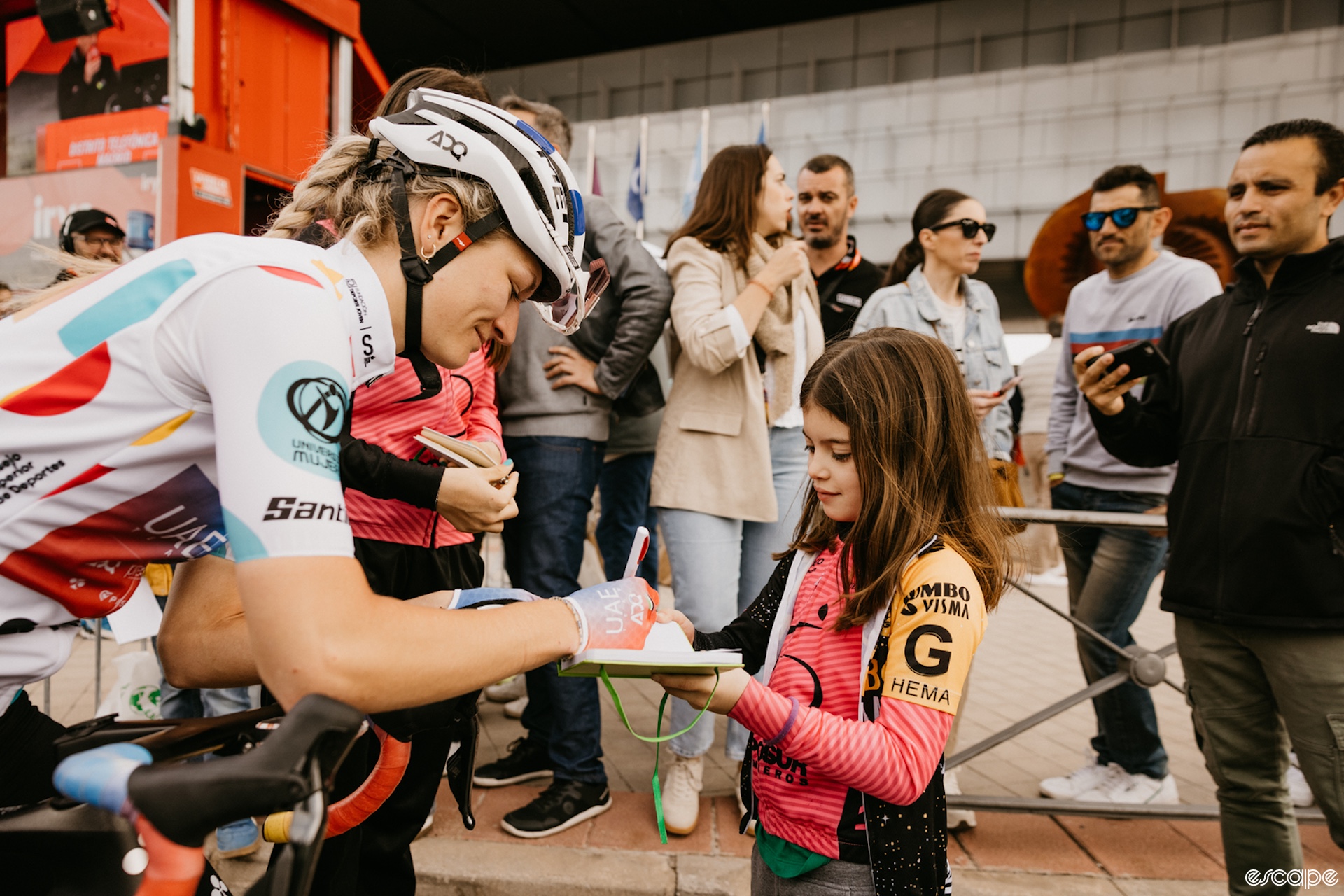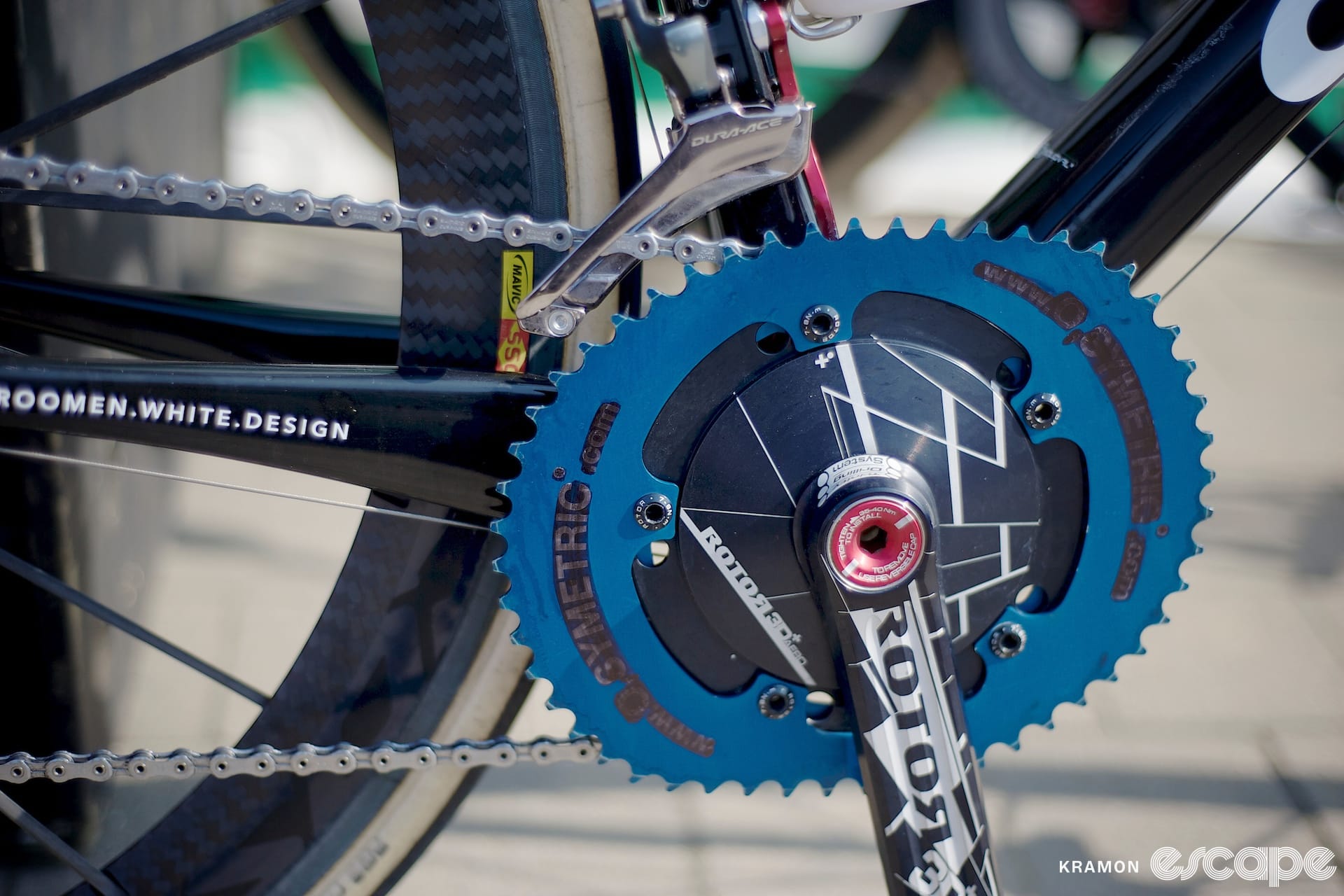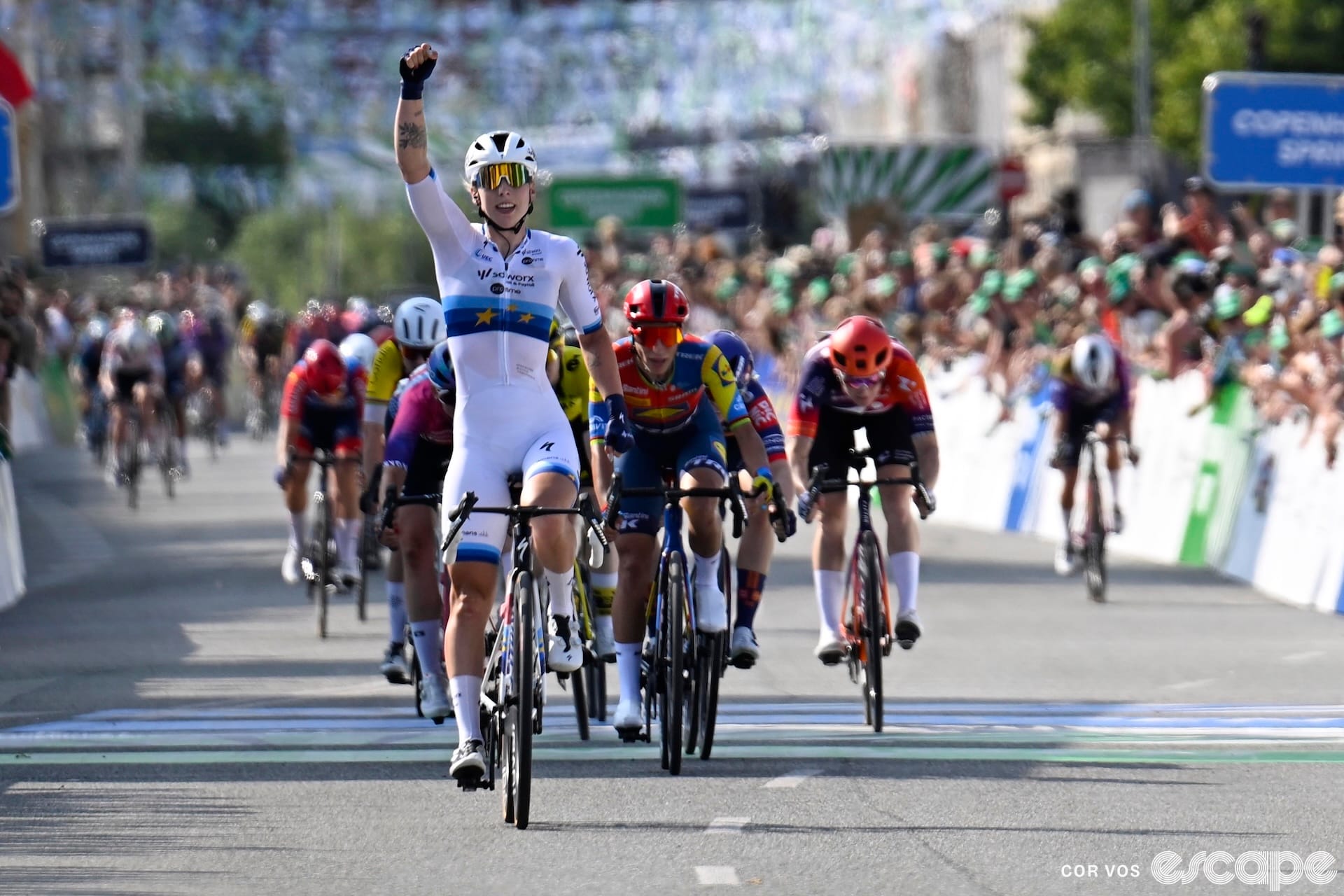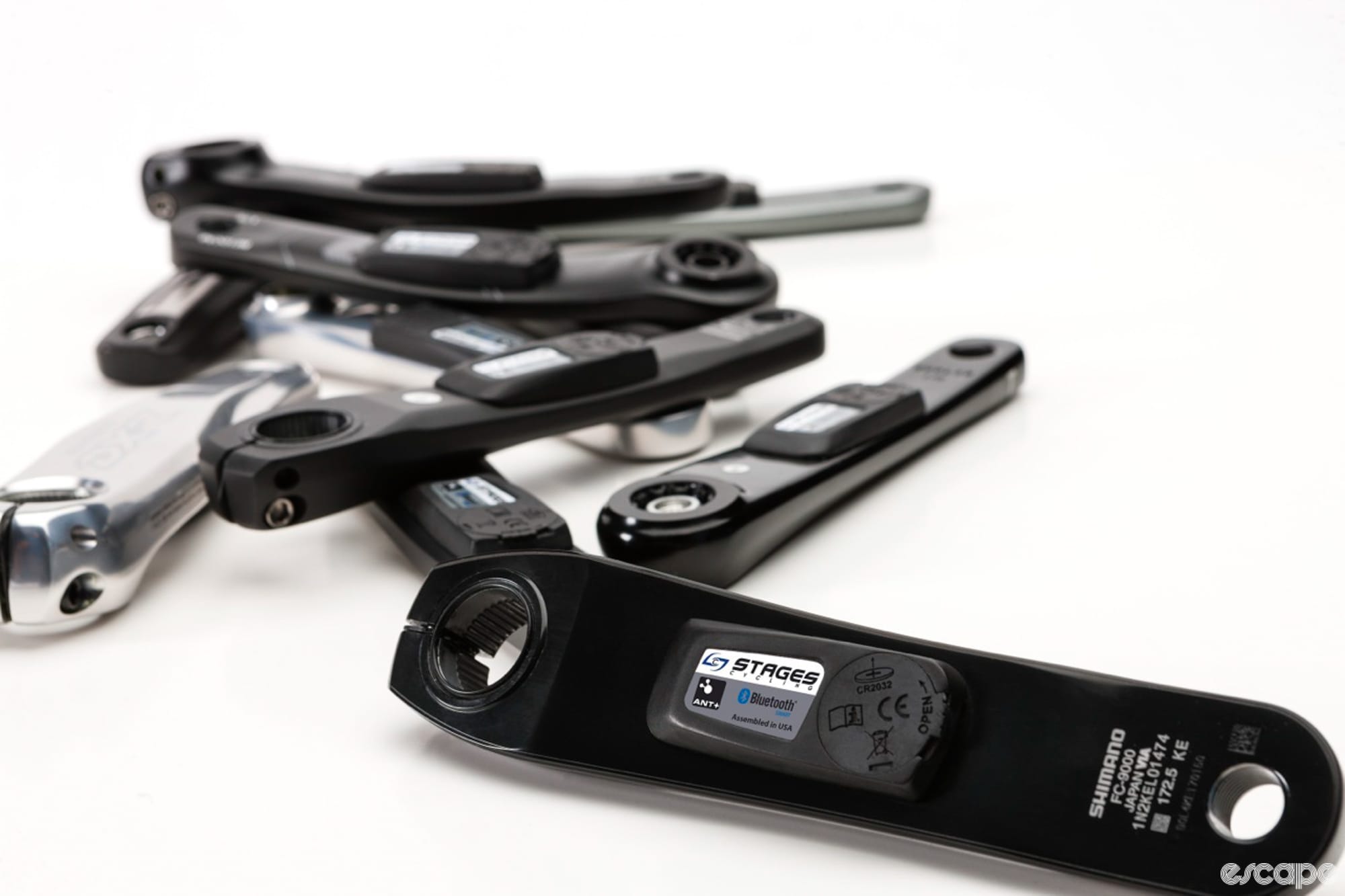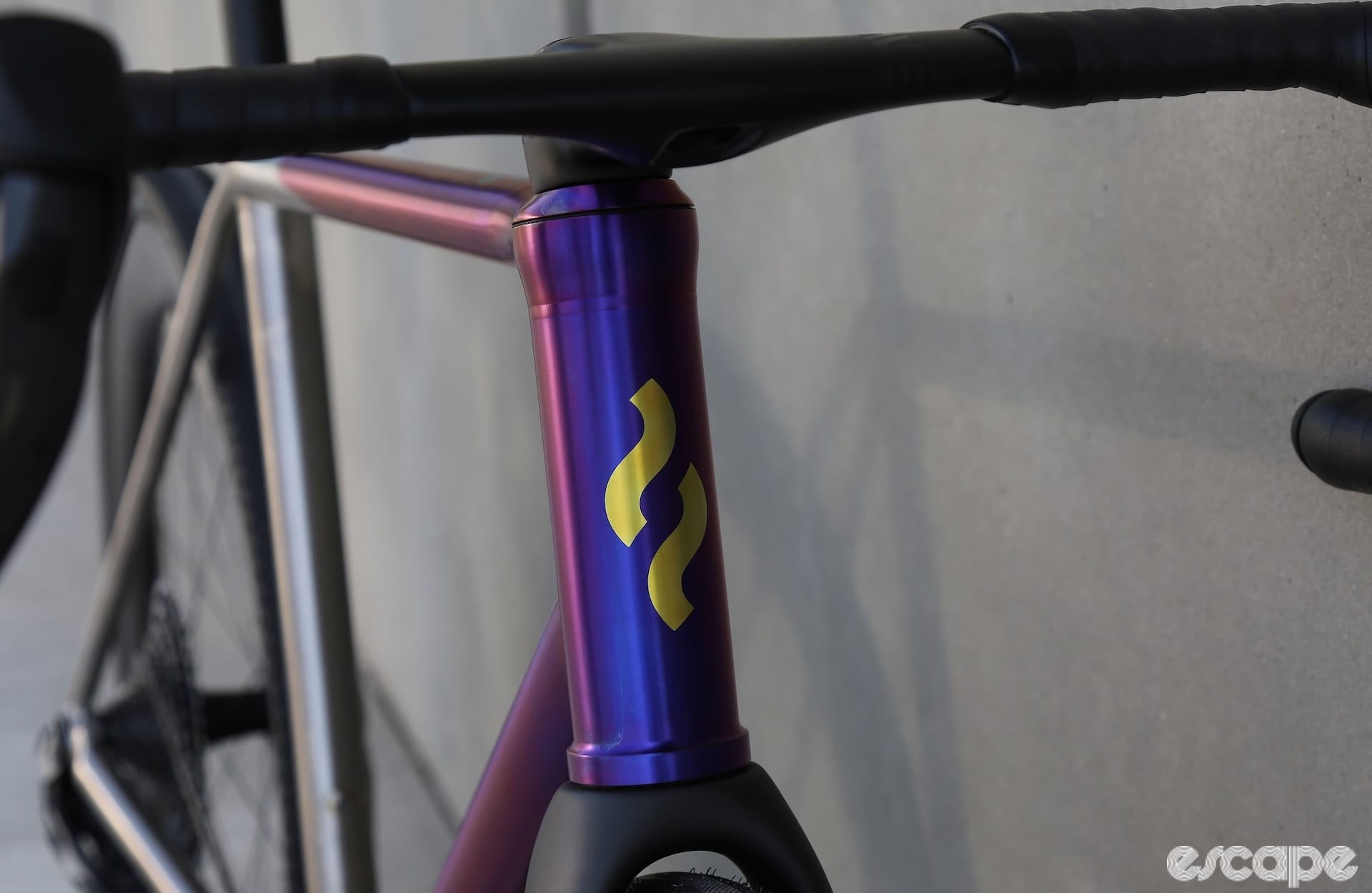A day after the final stage of La Vuelta España Femenina, and with the spring season still in mind, the year so far is making a case for being one of the best we've seen in recent memory.
There are quite a few factors at play that have come together to make this season so good, but if we look at just the Spring Classics and the first "Grand Tour" of the year, some major storylines come together to enhance the enjoyability of the racing.
Going into the season the major question was "How will anyone beat SD Worx-Protime?" Last year they were the standout team. In the buildup to every race on the calendar, it was SD Worx this, SD Worx that. Riders of other teams were constantly asked about the SD Worx-Protime of it all, but this year we've seen a shift. Three riders on the team remain the out-and-out favourites for any event they rock up to, but the team in general is not overshadowing the entire peloton like they did in 2023.
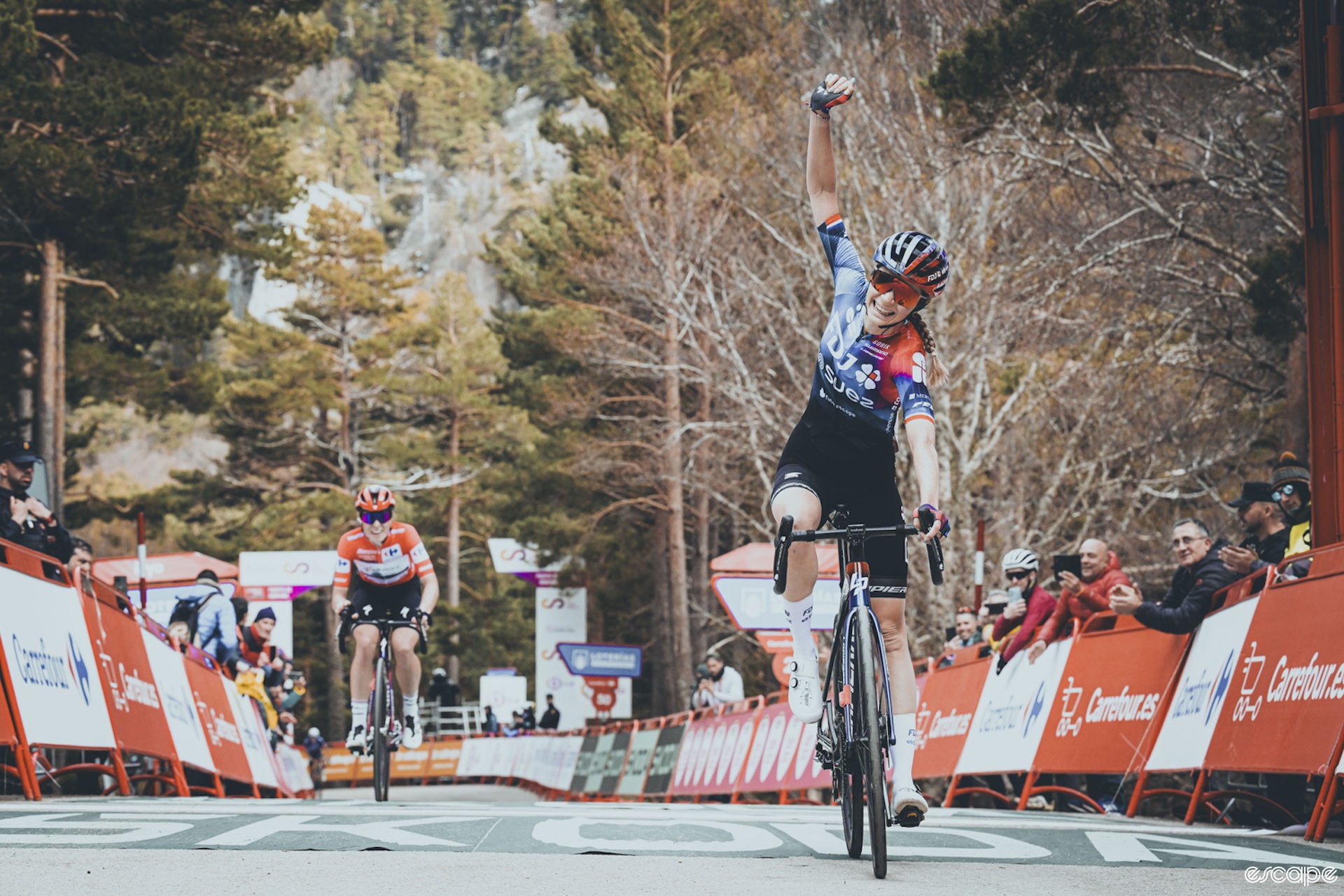
Lotte Kopecky and Lorena Wiebes were the team's strongest riders of the spring; with five wins between the two of them they were some of the top competitors, but we didn't see the Dutch team going 1-2 in nearly as many races. On multiple occasions last year the team was head and shoulders above the rest. This year they had to work for those wins, which has made each victory all the sweeter to watch.
Vollering's form has only come into play at La Vuelta, which meant that the Ardennes triple went to other riders. Last year, when Vollering won all three Ardennes, it was on the back of SD Worx-Protime winning most of the cobbled Classics as well and added to the SD Worx-Protime fatigue, before stage race season even started.
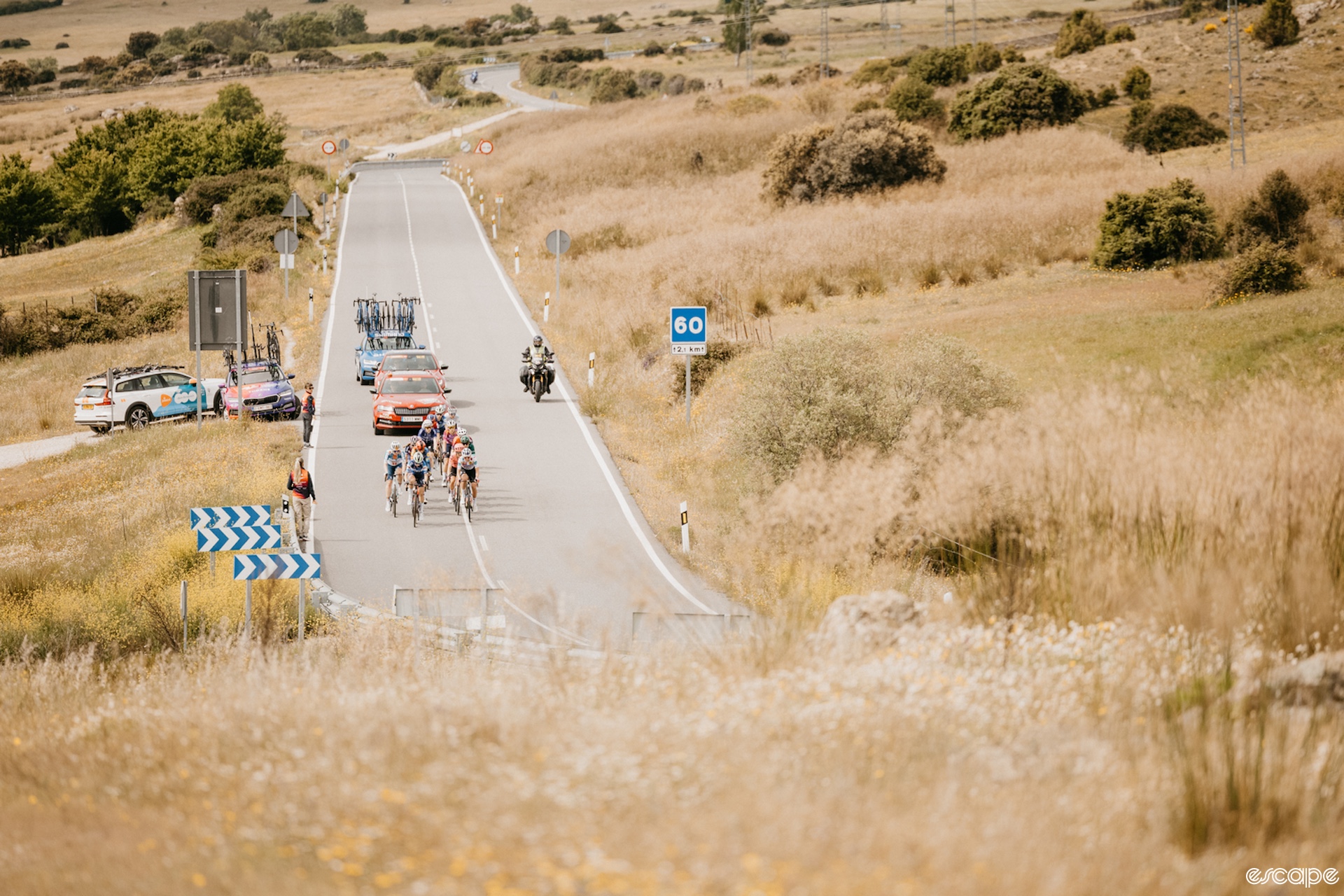
Scroll through the spring one-day results and you'll see wins from Elisa Balsamo (Lidl-Trek), Marianne Vos (Visma-Lease a Bike) and Elisa Longo Borhgini (Lidl-Trek). From the Tour of Flanders through Liège-Bastogne-Liège we had five different riders of five different nationalities and teams win, including Grace Brown (FDJ-Suez) and Kasia Niewiadoma (Canyon-SRAM).
Each race was also fantastic, but the Tour of Flanders and Paris-Roubaix Femmes avec Zwift were standouts, won by Longo Borghini and Kopecky, respectively.
When La Vuelta rolled around only one week after the Ardennes the peloton was already tired; it had already been a long season, but we were in for a treat from the opening team time trial – when Lidl-Trek barely won against Visma-Lease a Bike despite Ellen van Dijk and Elynor Backstedt going down in the final corner – to the final stage where Vollering took off on her own with 6 km of climbing remaining to put to bed any questions around her form.
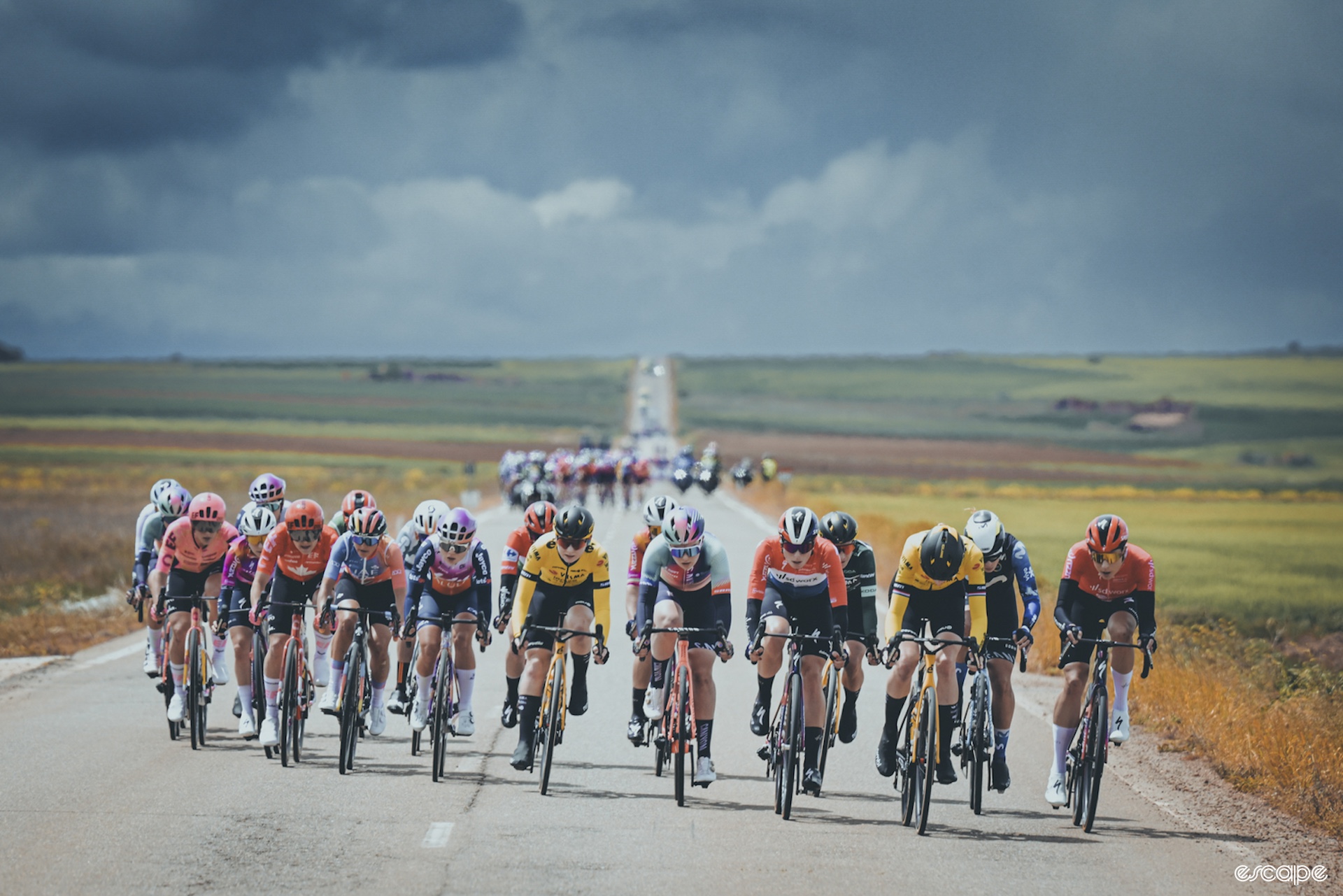
Every stage in between came with its own drama. The crashes on Stage 2 threw the peloton into chaos and led to a beautiful victory from Alison Jackson, also EF Education-Cannondale's first WorldTour win. Stage 3 gave us a bit of sprint action and the always-nice-to-see win from Marianne Vos. By Stage 4 it was all crosswinds, with constant action, assessing who missed out and whose general classification goals had been impacted, and that was even before Kristen Faulkner took off in the final kilometres to take another win for EF.
When the race reached the mountains it became a different event. The fast stage days were behind us and we moved on to the overall conversation, with Vollering at its centre. Stage 5 gave Vollering her first win of the year. The Dutch national champion was visibly emotional after the win, having missed out time and time again throughout the spring. Another mountain stage on Friday left everyone smiling when Évita Muzic took a stunning victory ahead of Vollering. The former French national champion has been knocking on the door of a big win since she took the final stage of the 2020 Giro Rosa, but hasn't had an easy run at it. Last year she was forced to leave the Tour de France Femmes avec Zwift early after going in as one of the team's top riders, so for her to win ahead of the race leader Vollering was something special to see – almost as special as the reaction from her teammates.
The final two stages brought the drama, with another crosswind stage on stage 7 that ended in a second victory for Vos and then another Vollering win the following day. Both stages highlighted the strength of other riders in the peloton, like Faulkner's lead into the final ascent of Stage 7 or Riejanne Markus riding to third on Stage 8 and leaping over Longo Borghini in the general classification to finish second behind Vollering.
One year ago La Vuelta had its own drama when Vollering stopped for a nature break while wearing the red jersey and because of that decision lost the race to Annemiek van Vleuten. This year the drama all happened with the legs and the mind out on the roads. Last year we had six Dutch victories over seven stages of racing; this year it was four different nationalities who claimed stages, and five different teams.
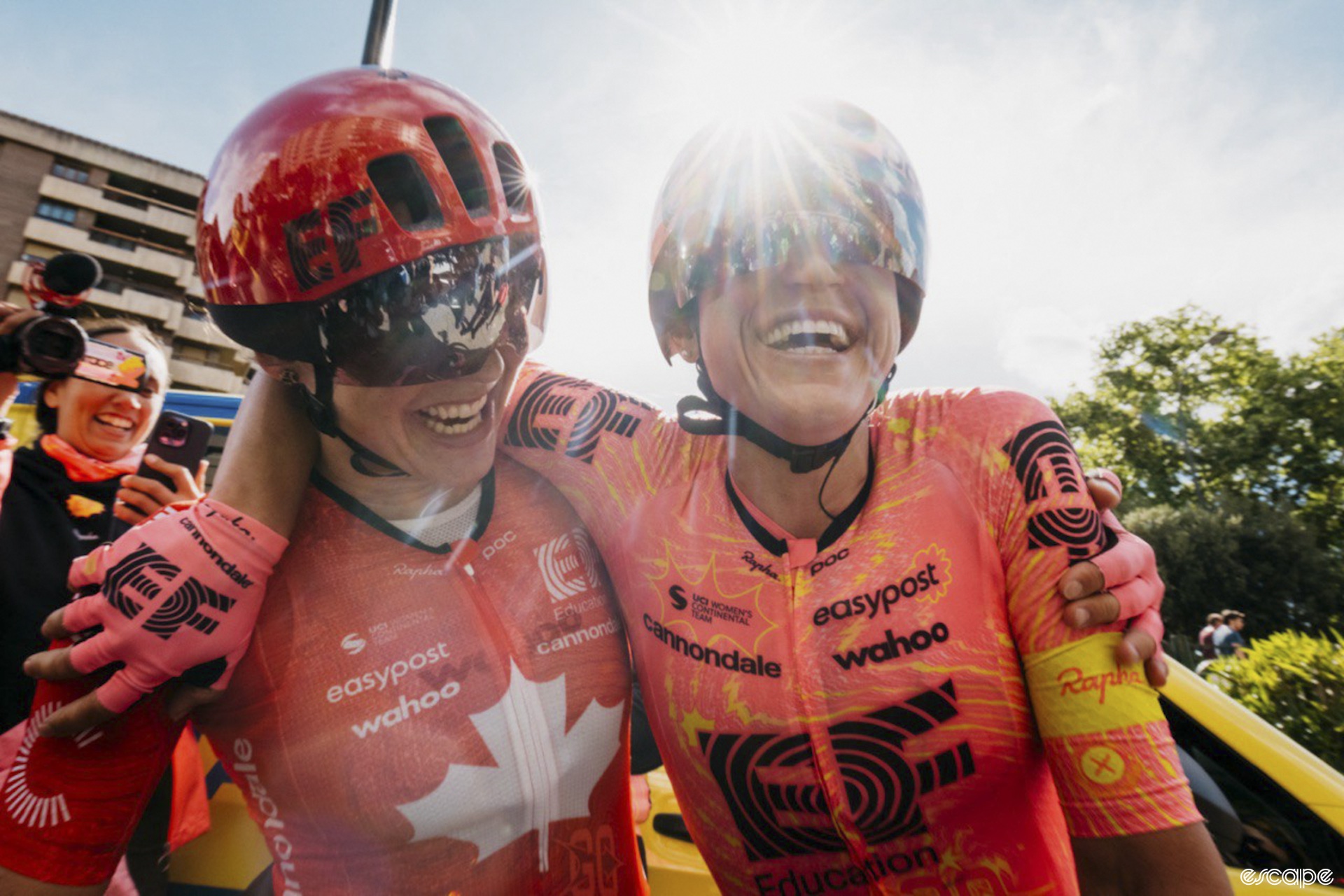
For years we've been talking about the growth of women's cycling, how the field is getting deeper and the racing is getting better, but combing through the memories of the season so far that growth is evident. Looking past the top step of the peloton you'll find a handful of up-and-coming talents like Ricarda Bauernfeind of Germany, Kim Cadzow and Niamh Fisher-Black of New Zealand, Ingvild Gåskjenn of Norway, Karlijn Swinkels of the Netherlands.
In the season after the retirement of Annemiek van Vleuten, the next generation of women is stepping up to the plate and delivering. The question of who would step up to challenge SD Worx-Protime have been answered: it's everyone. The entire peloton has upped their game.
Some predictions made before La Vuelta came true. Vos won a stage, or two. Vollering won the overall, decidedly. But the race still had plenty of surprises in store. Faulkner's and Jackson's wins highlight that.
With plenty more racing to come this year, and two more "Grand Tours" to look forward to, it's clear we are in a golden age for women's cycling, and it's only getting better.
Did we do a good job with this story?

